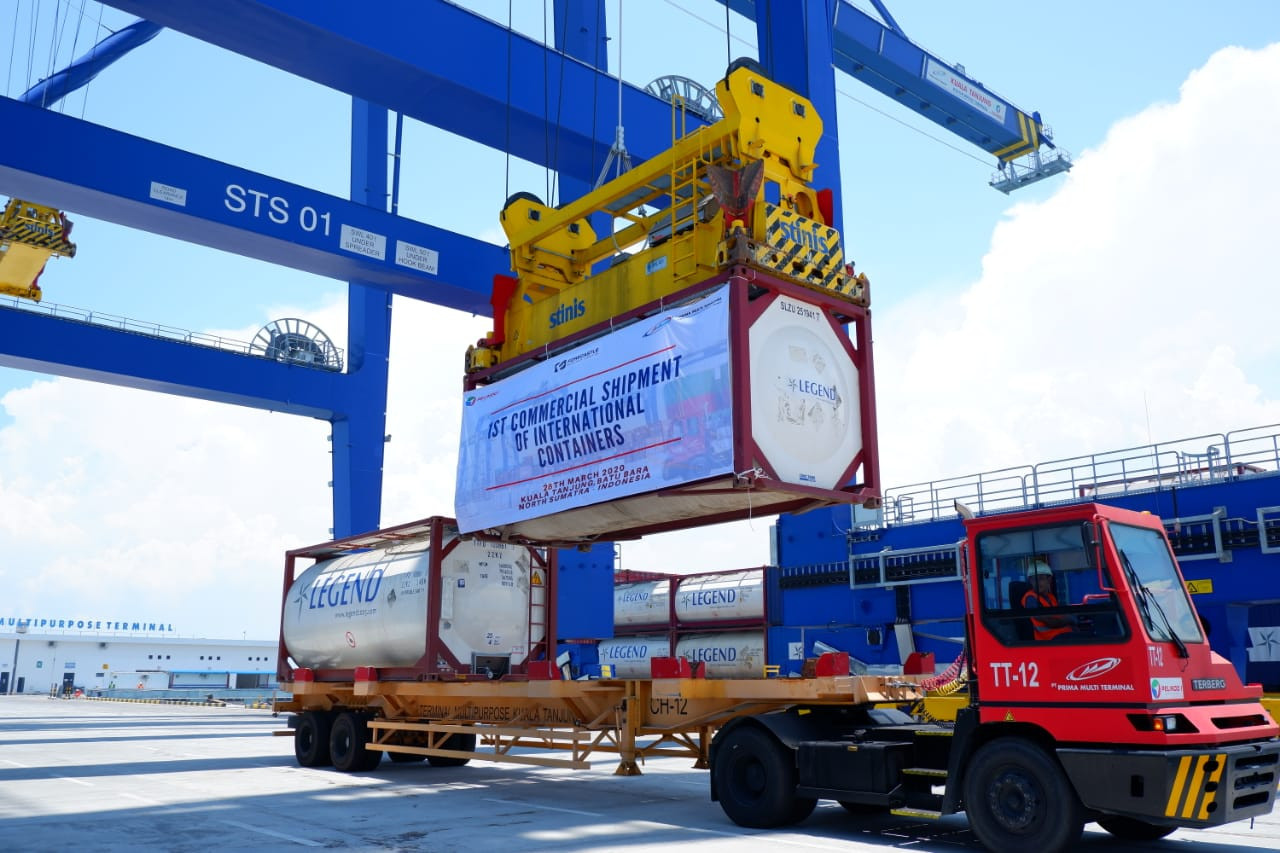Popular Reads
Top Results
Can't find what you're looking for?
View all search resultsPopular Reads
Top Results
Can't find what you're looking for?
View all search resultsShipping industry weathers pandemic, oil price storm
Change text size
Gift Premium Articles
to Anyone
T
he country’s sea freight industry has continued to see depressed demand as a result of the pandemic and a global oil price slump, the Indonesian National Shipowners Association (INSA) has said.
INSA chairperson Carmelita Hartoto said that although the government’s relaxation of large-scale social restrictions (PSBB) had resulted in an uptick in passenger sea transport, the cargo shipping sector had continued to suffer.
“In other [sea transportation services], there have not been any significant changes, since production, or industrial output, has not fully recovered,” Carmelita told The Jakarta Post on Wednesday.
COVID-19 restrictions, which are now being phased out in some places, have caused logistical disruptions along the supply chain by limiting mobility in an effort to contain the spread of the coronavirus, which has infected more than 40,000 people nationwide.
The INSA reported in early May that container ship revenue had fallen by 10 to 25 percent from normal levels. Likewise, the revenue of bulk carriers – tankers, tugs and barges – dropped by 25 to 50 percent.
The pandemic has affected the major users of maritime shipping, including oil and gas companies, which are suffering from record-low oil prices following a demand slump during the pandemic.
In May, exports plunged 28.95 percent year-on-year (yoy) to US$10.53 billion, the lowest since July 2016, as a result of falling oil and gas exports, among other commodities, according to BPS data.
Because of the suffering oil and gas sector, shipping companies have seen early terminations of contracts with oil and gas businesses.
The ongoing health crisis has also impacted shipowners’ expenses. They have had to deal with higher insurance prices and more expensive spare parts, among other things, as the rupiah remains weak against the United States dollar, according to the association.
“We’ll see how it is a month from now,” Carmelita said.
Statistics Indonesia (BPS) reported that the transportation and warehouse sector grew by 1.27 percent yoy in the first quarter of 2020. This was a significantly slower pace than the 5.45 percent annual growth in the first quarter of 2019.
In April, cargo ships took a hit in terms of volume, which was down by almost 2 percent year-on-year to 24.91 million tons, according to data from Statistics Indonesia.
Meanwhile, logistics firms have started to switch to sea transport amid the decline in the air cargo operation under PSBB.
While the country transitions to the “new normal”, Transportation Ministerial Regulation No. 41/2020 will allow ships to deliver medical equipment and staple goods to help with the COVID-19 response.
Logistics firm PT Kamadjaja Logistics, which offers freight forwarding and warehouse services, used sea freight to deliver its cargo in late March because government restrictions on air travel had hampered air shipping.
“We are switching to sea freight, and we’re using roro [roll-on/roll-off ships]. In any kind of transportation, we try to reach the customers, the end users,” Ivy Kamadjaja, the company’s deputy chief executive officer, said on Tuesday.










